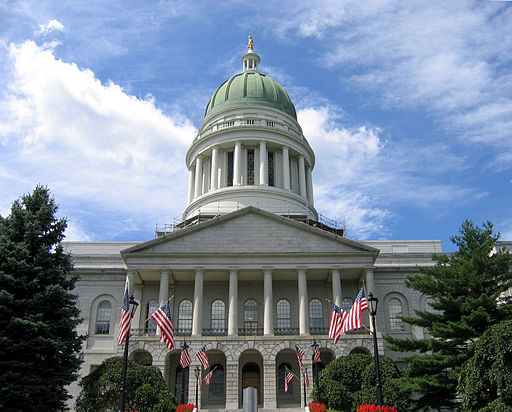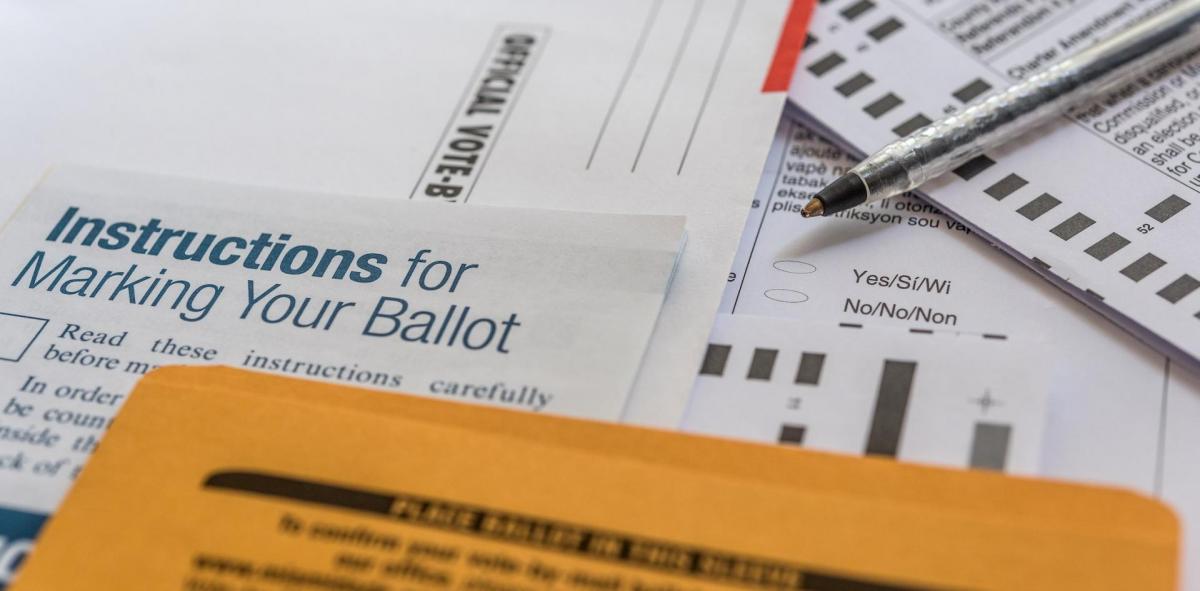Tag: maine
-
Maine lawmakers recall RCV expansion from Gov. Mills’ desk

On June 25, 2025, both chambers of the Maine Legislature agreed by voice vote to recall LD 1666 from Gov. Janet Mills (D) desk and carry the bill over to the next special or regular legislative session. The bill would have expanded the state’s use of ranked-choice voting (RCV) to include general and special elections…
-
Maine voters to decide two citizen-initiated ballot measures in Nov. 2025 election, including voter ID and extreme risk protection orders

The Maine State Legislature adjourned on June 25, meaning voters will decide two indirect initiated state statutes at the election on Nov. 4, 2025. Signatures were submitted for two ballot initiatives in Jan. 2025—the Require Voter Photo ID and Change Absentee Ballot and Dropbox Rules Initiative and Extreme Risk Protection Orders to Restrict Firearms and…
-
Voters recall two Maine school board members

Voters approved recall elections against two members of the Maine School Administrative District 46 school board on June 10, 2025. In the recall election against Alisha Ames, 75% of voters cast ballots in favor of the recall, according to unofficial election night results. In the recall election against Judy Saunders, 67% of voters approved the…
-
Maine school board members face recall election June 10

Recall elections against Alisha Ames and Judy Saunders, members of the Maine School Administrative District 46 school board, are being held on June 10, 2025. On the ballot, voters will be asked if they are in favor of recalling each board member, and they will have the option to vote yes or no. A group…
-
Seven candidates are running for four seats on the school board for Maine’s School Administrative District 40

Three seats in Maine School Administrative District 40 are up for election on June 10, 2025. This district includes the towns of Warren, Waldoboro, and Union. Members are elected to three-year terms on the 16-member board. Bangor Daily News’ Jules Walkup wrote, “A decade ago, little attention would have been paid to school board races…
-
Update on 2025 and 2026 ballot measure certifications: Seven new measures in four states for 2026

The number of certified ballot measures for 2025 and 2026 is trending above the average as of March 18, 2025. For 2025, six statewide ballot measures have been certified in three states—Louisiana, Ohio, and Wisconsin. Six is one more than the average of five for this point in an odd-numbered-year election cycle since 2010. For…
-
Maine voters could decide on establishing extreme risk protection orders (ERPOs), a type of firearms regulation, in Nov. 2025

Maine Secretary of State Shenna Bellows (D) announced on March 7, 2025, that the signatures for a ballot initiative to create a process for extreme risk protection orders, a firearm regulation policy, were validated, certifying the initiative to the legislature. If the legislature does not approve the measure, it will be placed on the ballot…
-
Maine initiative on voter ID, absentee ballots, and dropboxes certified to legislature; will appear on the November 2025 ballot unless lawmakers enact it

In Maine, signatures for a citizen initiative to require photo voter identification, among other changes, were verified on Feb. 19, 2025. Secretary of State Shenna Bellows (D) announced that the campaign submitted 86,904 valid signatures. A minimum of 67,682 valid signatures was required. The proposed initiative will now go to the state legislature for consideration.…
-
Signatures submitted for Maine initiative to establish extreme risk protection orders (ERPOs), a type of firearms regulation

Signatures have been submitted in Maine for a ballot initiative to establish a process for extreme risk protection orders, a policy related to firearms regulation. The ballot initiative, unless approved by the legislature, would appear on the ballot for Nov. 4, 2025. The Maine Gun Safety Coalition reported submitting more than 80,000 signatures to the…
-
Signatures submitted for Maine voter photo ID ballot initiative, which could appear on Nov. 2025 ballot
In Maine, a campaign advocating for a citizen initiative to require photo voter identification submitted more than 170,000 signatures to the secretary of state’s office on Jan. 6, 2025. If enough signatures are verified, the initiative could appear on the statewide ballot for voters on Nov. 4, 2025. Maine has an indirect initiative process, meaning…

